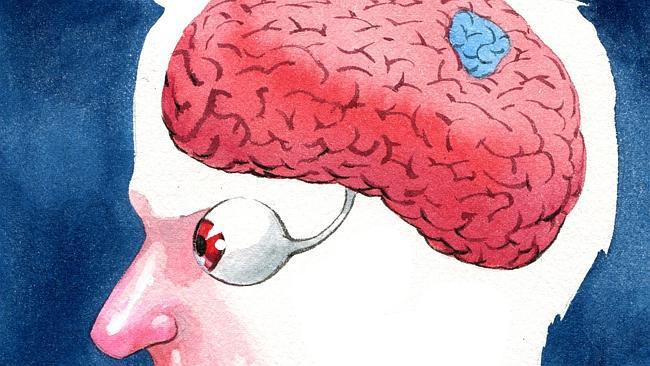
WHEN a student turns up for a social science class at an American university there is an eight to one chance the lecturer will be a Democrat voter.
Studies consistently have found that the proportion of American academics prepared to out themselves as conservative is between 4 per cent and 8 per cent.
It would be no surprise to anyone, inside or outside the academies, if a local study produced much the same result. Australian academics too fancy themselves as progressives, or liberals in the American parlance. Universities, and other cultural institutions such as the ABC, are uncomfortable places for conservatives.
This is odd, really, since no university these days would be complete without a solemn commitment to diversity. James Cook University in Townsville, for example, boasts of “a rich cultural and experiential diversity on campus”. It embraces “the principles of equity, access and inclusion”.
The promise of “experiential diversity”, however, does not extend to members of the cultural Right. Climate-change sceptics do not qualify as an “equity group” afforded special protection under the university’s equal opportunities employment policy.
Neither are old white males for that matter, which meant when JCU sacked professor Bob Carter he didn’t have a leg to stand on. Not literally of course, for a JCU employee who was, to use Dudley Moore’s phrase, deficient in the leg department would have many avenues of redress.
Carter, the former head of the geology department, was stripped of his adjunct professorship last year because his views on climate change were not to the university’s liking. “Sustainability”, after all, is one of JCU’s key values. So is “mutual respect”, a courtesy not extended to Carter, despite his many years of distinguished service in academe.
Thus the right to be an intellectual bigot is steadfastly upheld in almost every cultural institution in the country. The conventional wisdom on everything from climate change to the supposed depravity of the Catholic Church is enforced, often unconsciously, in multiple ways.
The paradox between academe’s proclaimed virtue of inclusiveness and the exclusion of conservative thinkers is explored in a paper to be published soon by the journal Behavioural and Brain Sciences. The authors, led by Jose L. Duarte from Arizona State University, say there was once considerable political diversity in the field of academic psychology, but it has all but disappeared in the past 50 years.
Social psychologists, of all academics, should be particularly alert to the dangers of epistemological homogeneity, or groupthink as some prefer to call it. They would be aware of the errors that can pollute the group’s thinking if no one in the room is prepared to disagree. Assumptions become embedded into theory and method, researchers concentrate on topics that support the prevailing narrative and avoid those that do not.
One explanation for academic lopsidedness, Duarte suggests, is simply that liberals find an academic career more appealing than do conservatives, particularly in a field such as social psychology.
But while self-selection is clearly part of the story, it would be ironic if the academic community used such arguments “to exonerate the community of prejudice when that same community roundly rejects those same arguments when invoked by other institutions to explain the under-representation of women or ethnic minorities”.
A robust and largely civilised debate about the under-representation of conservatives in the humanities has been running for several years in the US. It began with an address by Jonathan Haidt, author of The Righteous Mind, who warned that political diversity was as important as racial, religious or gender diversity.
“The under-representation of conservatives in social psychology, by a factor of several hundred, is evidence that we are a tribal moral community that actively discourages conservatives from entering,” he said.
Daniel Gilbert, professor of psychology at Harvard University, agreed that “in every room of the academy, liberals outnumber conservatives by a whopping margin”. He questioned if it was because of discrimination, however. It could be that “liberals may be more interested in new ideas, more willing to work for peanuts, or just more intelligent, all of which may push them to pursue the academic life while deterring their conservative peers”.
John Jost, professor of psychology at New York University, was more critical. The liberal philosophy is, in the end, just better. “Nearly all of the best minds in science find liberal ideas to be closer to the mark with respect to evolution, human nature, mental health, close relationships, intergroup relations, ethics, social justice, conflict resolution, environmental sustainability, and so on,” he wrote. “He (Haidt) does not even consider the possibility that research in social psychology (including research on implicit bias) bothers conservatives for the right reasons.”
One suspects that Jost’s presumption that progressive ideas are ultimately more virtuous than non-progressive thoughts is the real reason the dominant cultural class appears indifferent to the lack of intellectual diversity within the institutions.
When ABC staff look around them, for example, it surely would not escape their attention that conservatives are somewhat thin on the ground. It must feel a little odd to work in a building where hardly anybody admits to voting for Tony Abbott.
They must realise, surely, that many of their listeners and viewers (and an increasing number of ex-listeners and ex-viewers) see the world in a different light, and that they cannot all be stupid. Why, some of them can write reasonably literate letters to the editor of The Australian to say so.
Deep down, one suspects, it is just as Jost implies, and they are working under the delusion that they are members of that fortunate group that sees the world in more sophisticated terms than those unreconstructed conservatives do.
Maybe they do, or maybe don’t. What is clear, however, as any social psychologist will tell you, is that institutions are diminished when the conventional wisdom becomes entrenched, groupthink takes hold and dissident voices are treated with contempt.


